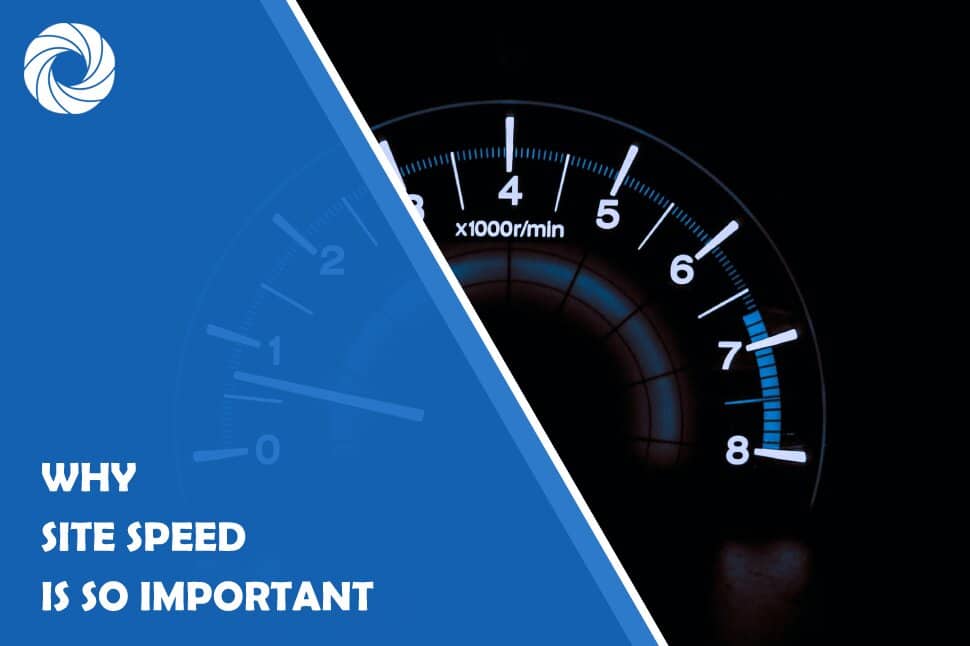We've all been there, clicked on a website, and then looked at the loading screen for what seems like an eternity. This greatly influences the site's conversion rate, user loyalty, and search ranking. So, if you want to keep people on your site and reduce the number of frustrating moments they experience on your site, we have some info for you.
Site speed is critical for online success as it directly impacts user experience, a key aspect often highlighted in a UX design brief. Faster loading times lead to higher user satisfaction, improved search engine rankings, and increased conversion rates, making it essential for any successful digital strategy.
1. Conversions

Let's quickly explain what a conversion rate is. Imagine running an online store that gets 100 clicks per day. Now, let's say that out of those 100 people who clicked on the website, 10 made a purchase. That means that you successfully converted 10% of the visitors. Now that we know this let's see how site speed affects these numbers.
According to many studies, the highest conversion rate happens in the first 5 seconds of someone visiting a website. For every second after those 5 initial ones, the conversion rate drops rapidly. So, if you want your website to fulfill its role, it needs to be optimized and fast. We aren't talking about just seconds here; even milliseconds are important!
Let's look at Walmart as an example. They compared their site speed to that of Amazon, eBay, and other competitors and concluded that their website needed optimizing.
For every second that they managed to shave off their loading time, their conversion rate increased by 2 percent. For every 100 milliseconds, their online revenue increased by 1%!
There, we can see the importance of site speed when it comes to the conversion rate and how not only seconds but also milliseconds matter.
In today's day and age, people expect a website to load instantly, and they have less patience each year for slow websites.
2. Loyalty
The same case is for all other types of sites. People like to return to sites which they have already visited, purchased something from (if we are talking about online shops), and sites that did not disappoint with their responsiveness. This is especially important for eCommerce sites. Most of the conversions on those sites are people satisfied with the quality of the products and the site's load times.
We can see that site speed plays a big role in loyalty. So, when we are making a site, we need to consider our visitors to provide them with a great user experience. That way, we will get satisfied visitors who will have a higher chance of returning and becoming loyal.
3. Search Ranking
You might ask yourself, how does a website's speed affect its search ranking. Well, since 2010 for desktop sites and 2018 for mobile device sites, Google has been saying that one of the most important criteria for search result ranking is the site's responsiveness and speed.
Google stated that if a page is taking longer than 3 seconds to load, half of the users will abandon it. For Google, this rule was user-centric and was intended to help users find information and products as quickly as possible. For developers, this was a signal to seriously evaluate existing website optimizations and implement new ones. So, if Google thinks you should pay attention to your site's speed, then maybe it is time to revisit some of its internal workings and see what can be made lighter and faster.
This, in turn, will bring a lot more people to your site, increase your profits, spread your message and help with fulfilling any other goal your website has.
Conclusion
We can see that a site's speed is an important factor in its success. It is a valuable indicator to a user as well as to a developer. Users want to have quick and effortless interactions on the internet, and it is our goal to provide them with that. The motivation for this is not just the immediate and obvious benefits, like getting more clicks; instead, it is also things like loyalty and search result ranking.
So, be mindful of your potential visitors, and they will remember your site in a good light and return to it regularly.
Also, next time you finish a website and think it is quick enough, do check again. As we have seen, even milliseconds could have an impact on the bottom line.
